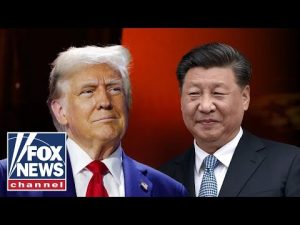In the current landscape of international trade, the discussion around tariffs has ignited a fiery debate. Some argue that tariffs are merely short-term tools for negotiation, while others question their long-term implications. The reality is that when it comes to trade with countries like India, the playing field is anything but level. The undeniable fact is that the United States faces staggering tariffs on American-made products entering India. For instance, the Indian government imposes a hefty 70% tariff on cars like those made by American manufacturers. This is an issue of fairness and equity in global trade.
It’s essential to understand why this disparity matters. American companies seek to compete in the international market, yet they are handcuffed by exorbitant tariffs that practically eliminate their chances of success abroad. When Indian cars enter the United States, they enjoy lower tariffs, although not zero, with a rate of 2.5%, while American brands are penalized to an astonishing degree. This type of imbalance does not promote free trade; it promotes a system where foreign competitors thrive at the expense of American ingenuity and jobs. It raises a simple question: why should the U.S. tolerate such unfair treatment?
Critics love to attack any idea related to tariffs, labeling them as negative. However, a strategic approach to tariffs, especially against countries that impose unfair trade practices, can be an effective weapon in negotiations. It’s a lesson in real-world economics: one does not walk into a negotiation expecting to gain ground by making concessions. Instead, it involves setting forth a firm position. If negotiations start with American companies paying minimal tariffs while Indian tariffs remain sky-high, there is little room for reasonable compromise.
Some may argue that this approach is harsh or combative, but in the world of international trade, it is essential to take a firm stance. The mantra of “playing nice” at the table may sound appealing, but it has led to significant disadvantages for American workers and businesses. Tariffs should not be a knee-jerk emotional reaction; rather, they need to be strategically applied to protect American interests, foster competition, and encourage fair trade agreements.
Ultimately, the focus should be on creating conditions that allow American businesses to thrive. Fair trade policies rooted in equity should be the goal, but those policies will not come about through passivity. It’s clear that the current negotiations are about more than just tariffs; they are about restoring fairness in a global market that has long favored foreign nations at the expense of American workers. America needs to stand firm in negotiations and not shy away from using tools like tariffs when they are warranted. This is about preserving the integrity of American industry and ensuring that the next generation has a robust economy to build their lives upon.







